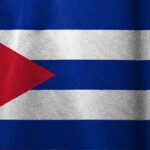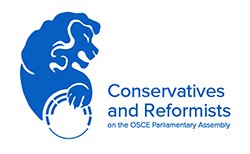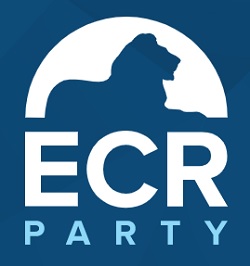 OPEN LETTER 87 parliamentarians from 17 countries have signed an open letter in which they urge the EU and the governments to take action to end the PDCA and stop financing the Cuban regime.
OPEN LETTER 87 parliamentarians from 17 countries have signed an open letter in which they urge the EU and the governments to take action to end the PDCA and stop financing the Cuban regime.
IT IS TIME TO END THE PDCA AND STOP FINANCING THE CUBAN REGIME
The Political Dialogue and Cooperation Agreement (PDCA) between the European Union and the communist regime in Cuba was signed on the 12th of December in 2016 and was approved by the Parliament on the 5th of July in 2017. After that, all EU member states, except Lithuania, have ratified the agreement.
The agreement has not led to improvements of the situation of the human rights in Cuba. On the contrary, there are today over 1400 political prisoners in Cuba. The communist dictatorship in Cuba has denied its people the most basic civil liberties and rights for over six decades. This same regime has served as an enthusiastic Soviet and Russian proxy, actively participating in foreign interventions from Angola to now Ukraine. In addition to this, the Havana regime has actively worked to undermine democracy in the entire region, having a direct role in propping up dictatorships in Venezuela and Nicaragua.
The European Union also funds various development projects, which are supportive of repression and flawed totalitarians institutions. Currently, the EU is reportedly funding 80 projects in Cuba to the value of 155 million euros. The funding is directed to organizations linked to the regime. However, most of the EU’s support goes through the UN, which brokers the funds. This is happening while the Cuban dictatorship doesn’t allow special rapporteurs for human rights to travel to Cuba, to visit political prisoners, activists, or self-employed Cubans. UN aid is also accused of being used by the regime against the population.
In 2023, during its presidency of the European Council, the Swedish government stated that it views with concern the continued negative developments in Cuba and the repressive actions of the Cuban state. The Swedish government said that “it can be stated that the PDCA [Political Dialogue and Cooperation Agreement] has now been applied provisionally for just over five years and the government’s assessment is that there are reasons for a review of the EU’s engagement policy and the PDCA, including the EU’s aid to Cuba.” Despite this, no action was taken.
The Swedish government was later asked why no measures were taken to initiate a review of the PDCA during the Swedish presidency. The answer from the Minister for International Development Cooperation and Foreign Trade, Mr. Johan Forssell, was:
“As EU chairman, Sweden’s role was to work for cohesion and coordination in the EU’s common foreign and security policy. It would therefore have been difficult to pursue a line in this role that goes against the EU’s common line. I firmly believe that a review of PDCA is warranted. Sweden has now handed over the presidency of the EU to Spain and will therefore work to ensure that a review of the PDCA takes place. This is done by raising the issue for discussion within EU cooperation and by gathering support from other member states for the line that a review is now warranted.”
The fact is that the EU financing of tyranny in the largest Caribbean Island has served only to embolden repression. The billions poured by Europe through the PDCA with the Cuban regime and the Club of Paris credit lines and loan forgiveness has not reached the people of Cuba. It has financed the regime that represses them.
After Russia’s full-scale invasion of Ukraine, the Cuban regime has declared full support to the Russian aggression and deepened its cooperation with Russia as well as the Russian allies Belarus and Iran. On the 18th of May in 2023, Belarus Deputy Defense Minister for International Military Cooperation, Valery Revenko, said on Twitter that Belarus would train Cuban troops and that military cooperation between the two countries would take place “in a planned manner.” On the 24th of May, six days after Belarus’ announcement, news outlets in Russia’s Ryazan region reported that “several Cubans” were taken to the “special military operation” zone (that is, Ukraine), as well that Vladimir Putin would grant them citizenship and pay them monthly wages of $2545 for a year and a one-time payment of about $4933. The day after, on the 25th of May, a Russian TikToker shared a video where alleged Cuban citizens, wearing the Cuban flag, were fighting in Ukraine.
On the 5th of September in 2023, a Russian high-ranking military officer confirmed to The Moscow Times that international battalions on the frontlines in Ukraine were made up mainly of Cubans and Serbians. Several Cubans, including two 19-year-old citizens and their relatives, have denounced that citizens in the island are signing contracts with the Russian military. The mother of one of the enlisted young men explained that Russian officers have threatened her son with imprisonment for 30 years in Russia or Cuba if they don’t fight in Ukraine.
In March, before Cuban troops were sent to Europe, Raul Castro and Nikolai Patrushev, Secretary of the Security Council of Russia, met in Havana to align their military priorities with each other. They concluded that there was a need for greater cooperation between their armies on issues like “threats from the West” and counteracting “color revolutions” in Cuba and Europe.
The European Union says that it stands up for Ukraine against the Russian aggression, but it has an agreement with and finances a regime that cooperates and supports the Russian and Belarusian dictatorships and deploys soldiers to engage in the war against Ukraine. This is hypocrisy.
For the sake of the freedom and life of Cubans, for the sake of democracy in Latin America, in further support for Ukraine, the EU should review its misguided policy towards the totalitarian state ruling the island nation.
We, the undersigned members of parliaments in Europe and in Latin America, urge the EU and the governments to take action to end the PDCA and stop financing the Cuban regime.
Stockholm, 27th of February 2024
BJÖRN SÖDER, Sweden
MARKUS WIECHEL, Sweden
ANGELICA LUNDBERG, Sweden
ANN-CHRISTINE FROHM UTTERSTEDT, Sweden
BEATRICE TIMGREN, Sweden
CAMILLA BRODIN, Sweden
CHARLIE WEIMERS, Sweden
CHRISTIAN CARLSSON, Sweden
ERIK HELLSBORN, Sweden
FREDRIK MALM, Sweden
GUDRUN BRUNEGÅRD, Sweden
HANS EKLIND, Sweden
LARS WISTEDT, Sweden
NIMA GHOLAM ALI POUR, Sweden
MAGNUS BERNTSSON, Sweden
MATHEUS ENHOLM, Sweden
MATS ARKHEM, Sweden
MONA OLIN, Sweden
PATRICK RESLOW, Sweden
RASMUS GIERTZ, Sweden
JESSICA STEGRUD, Sweden
PATRICK RESLOW, Sweden
SARA GILLE, Sweden
SARA-LENA BJÄLKÖ, Sweden
STAFFAN EKLÖF, Sweden
ULF LINDHOLM, Sweden
VICTORIA TIBLOM, Sweden
FATMIR MEDU, Albania
MARTIN GRAF, Austria
ERKIN GADIRLI, Azerbaijan
ADELINE BLANCQUAERT, Belgium
BOB DE BRABANDERE, Belgium
MARK DEMESMAEKER, Belgium
ELLEN SAMYN, Belgium
CHRISTOPH HOFFMANN, Germany
MALTE KAUFMANN, Germany
DOMENICA SPINELLI, Italy
ELISABETTA GARDINI, Italy
EMANUELE LOPERFIDO, Italy
ESTER MIELI, Italy
FABIO PIETRELLA, Italy
LUCREZIA MANTOVANI, Italy
MARCO SCURRIA, Italy
BOB VAN PAREREN, Netherlands
AUDRONIUS AŽUBALIS, Lithuania
EMANUELIS ZINGERIS, Lithuania
LAURYNAS KASČIŪNAS, Lithuania
ŽYGIMANTAS PAVILIONIS, Lithuania
GRZERGORZ BIERECKI, Poland
IWONA ARENT, Poland
RADOSLAW FOGIEL, Poland
SORIN-TITUS MUNCACIU, Romania
GABRIEL MATO ADROVER, Spain
HERMANN TERTSCH, Spain
JOSÉ MARIÁ SÁNCHEWZ GARCIÁ, Spain
IGOR KRYVOSHEYEV, Ukraine
MARYAN ZABLOTSKYI, Ukraine
OLEKSANDR MEREZHKO, Ukraine
OLEKSII GONCHARENKO, Ukraine
OLENA KHOMENKO, Ukraine
SERHII KALCHENKO, Ukraine
SMYATOSLAV YURASH, Ukraine
YAROSLAV YURCHYSHYN, Ukraine
EDWARD LEIGH, United Kingdom
IAN LIDDEL-GRAINGER, United Kingdom
JOHN HOWELL, United Kingdom
RICHARD KEEN, United Kingdom
ROYSTON SMITH, United Kingdom
SALLY-ANN HART, United Kingdom
SHERRYLL MURRAY, United Kingdom
SIMON RUSSEL, United Kingdom
ELI FEINZAIG, Costa Rica
GILBERTO CAMPOS, Costa Rica
JOHANA, OBANDO, Costa Rica
JORGE DENGO, Costa Rica
KATTIA CAMBRONERO, Costa Rica
LUIS DIEGO VARGAS, Costa Rica
ANA MARÍA ORTIZ, El Salvador
IZABEL ARGUETA, El Salvador
JAVIER PALOMO, El Salvador
LISSETH PALMA, El Salvador
RICARDO GODOY, El Salvador
SILVIA OSTORGA DE ESCOBAR, El Salvador
ALVARO VIVIANO, Uruguay
ELSA CAPILLEIRA, Uruguay
MARTIN ELGUE, Uruguay
RODRIGO GONI, Uruguay



